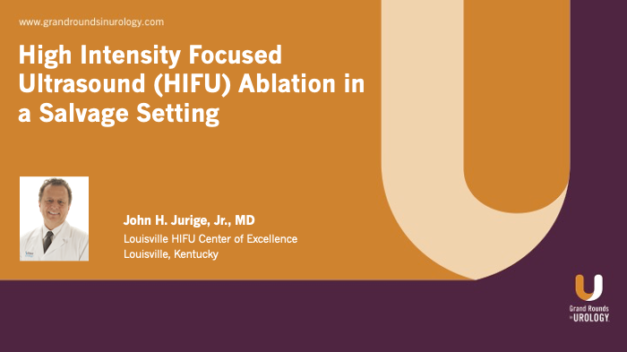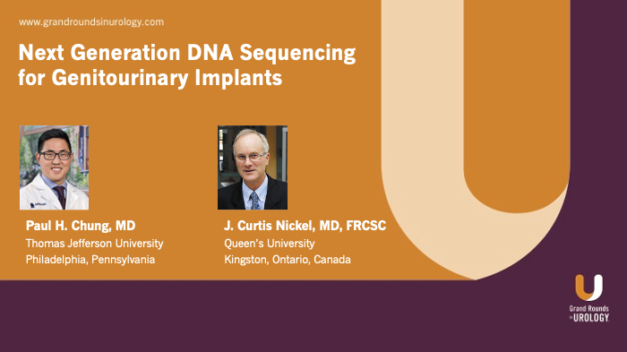High Intensity Focused Ultrasound (HIFU) Ablation in a Salvage Setting
John H. Jurige, Jr., MD, HIFU Program Director for the HIFU Center of Excellence in Louisville, Kentucky, discusses high intensity focused ultrasound (HIFU) ablation therapy for patients with radiorecurrent prostate cancer. He explains that this is a difficult subset of patients to treat, since they have very aggressive prostate cancer. Treatment will often fail, so one of the main objectives of treatment in this group must be quality of life preservation through avoidance of treatment morbidity and use of ADT. Focal HIFU is exceptional in this regard, even if its 5-year biochemical failure-free survival rates have historically been comparable to other forms of treatment. Dr. Jurige notes that these outcomes may be improved through better patient selection, and by starting patients on therapy at earlier stages of recurrence. Better patient selection, which can be more readily achieved with the recent improvements to prostate imaging, can also help prevent adverse effects like urethral stricture and rectal fistula. Dr. Jurige concludes by recommending that urologists give patients a full assessment and get all the studies they can before starting them on salvage HIFU after radiation.
Read More

